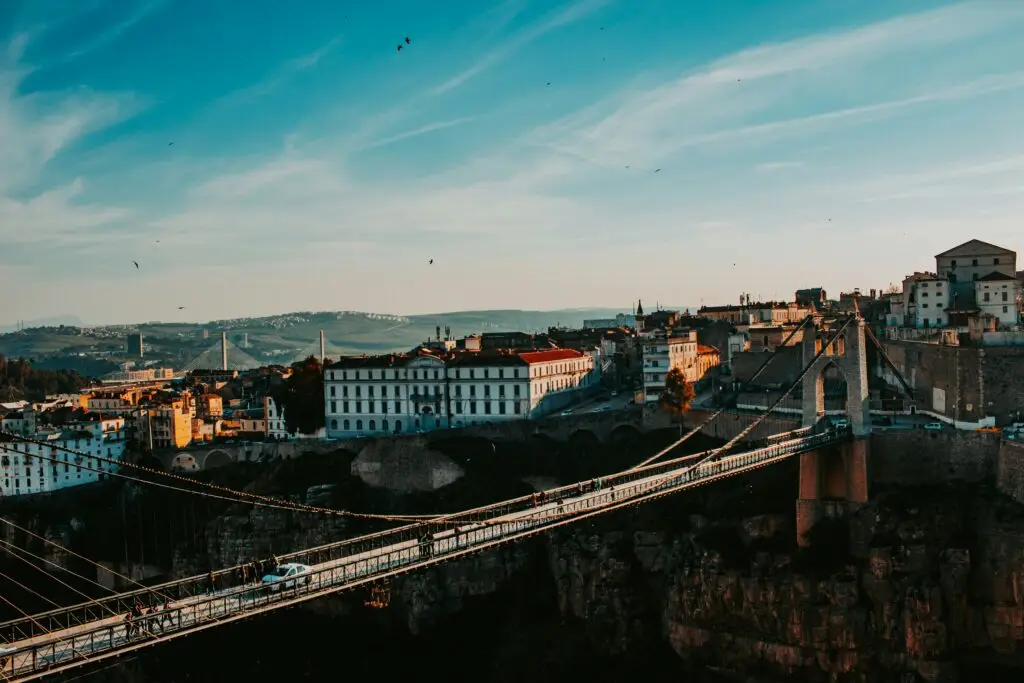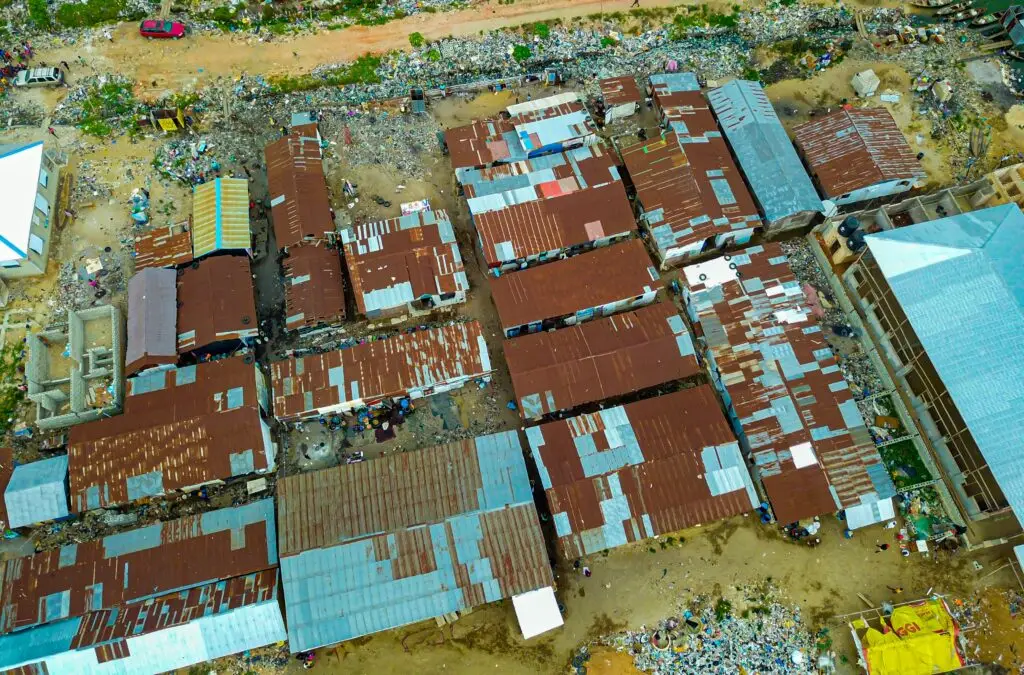Physical Address
Nairobi Kenya
Physical Address
Nairobi Kenya


It is easy and convenient to point a finger outward when diagnosing the wounds of Africa. The legacy of colonialism, foreign exploitation, resource extraction, and geopolitics is well-known, and the call by Italy’s Prime Minister Giorgia Meloni for an end to Africa’s exploitation is commendable in spirit. But if we are to perform honest surgery on the soul of the continent, we must be bold enough to slice into the rot festering within.
Yes, Africa was exploited. But Africa continues to bleed itself.
Travel north to Morocco, Algeria, or Tunisia and you witness a different face of Africa. One of infrastructural ambition, urban innovation, robust public transport systems, and relatively efficient governance. Morocco’s bullet train glides at 320 km/h, connecting cities and dreams. Algerian cities glow with oil-funded development, and Tunisia, even amid political volatility, invests more in education and health than most of Sub-Saharan Africa combined.

Morrocco
But dare to look south and west across the Sahara, and the picture darkens. Roads crumble, hospitals decay, children walk for miles barefoot to under-resourced schools, and power outages are a daily hymn. In Cameroon, Paul Biya, a man whose rule began before most of his citizens were born, has governed for over four decades, yet hospitals in Yaoundé and Douala still lack basic facilities, and roads in rural regions remain death traps. He spends more time in Swiss hotels than with his people. Is this the West’s doing, or Africa’s refusal to unshackle itself from the cult of personality and the intoxication of power?
We cannot keep blaming the wind when our sails are torn from within.
Let us talk about the loans. The billions of dollars dangled before African leaders by Western banks and institutions. These were not forced upon us at gunpoint. No, they were accepted with outstretched hands and greedy hearts. What followed were not investments in solar grids, agro-industrial parks, or research institutions. Instead, those loans vanished, laundered and significantly misappropriated.

Ghana
In Nigeria alone, over $400 billion in oil revenue has “gone missing” since independence. In the DRC, a nation so rich in minerals it should rival Qatar in wealth, millions still live on less than $1 a day while elites fly in private jets. The enemy is not always wearing a foreign suit; sometimes, it speaks your language, shares your name, and sings your national anthem.
Leadership, not just colonial residue, is Africa’s cancer.
We celebrate independence every year, but what is independence without accountability? Ghana, the shining star that first broke free from Britain’s grip in 1957, still staggers under the weight of economic mismanagement. The poverty index in parts of Accra mirrors the slums of South Asia. How can a country so rich in cocoa, gold, and oil be so poor in public service delivery and citizen welfare?
Meloni is right. Africans do not need to migrate to Europe or the United States to succeed. Africa has the sun, soil, and spirit to thrive. But let us not pretend that foreign interference is the only or even the greatest chain holding Africa back. We must confront the mirror, not just the map.
Removing foreign exploitation is merely breaking a corner of the iceberg. The mass beneath the surface, corruption, impunity, ethnic bigotry, mediocrity, and the addiction to personal rule, is what truly sinks the African ship.
So let us not merely chant about neo-colonialism. Let us march against internal betrayal. Let us hold not just the IMF accountable, but the men and women who take its loans and turn them into private jets instead of public schools.
Africa does not need more aid. It needs more honest leaders. Africa does not need more pity. It needs accountability. And above all, Africa does not need saviors from abroad. It needs patriots at home.
It is not lost on any conscious African that many of the continent’s richest lands are the poorest homes for their people. The Niger Delta gushes with black gold, yet its people drink poisoned water and breathe gas-flared air. In Guinea, bauxite mined for the world’s aluminum market is carted off daily, yet the villagers who live atop these mineral treasures build shanties out of mud and sticks.
What irony. What tragedy. What self-betrayal.
We often hear lofty speeches from African heads of state at international summits, filled with pride, pan-African rhetoric, and eloquent calls for dignity. But the dignity of the people is not preserved in soundbites; it is preserved in service. In working hospitals. In roads that connect villages to opportunity. In jobs that keep our youth from dying in the deserts of Libya or drowning in the Mediterranean.
When leadership is transactional, not transformational, development becomes accidental.
We are witnessing it in real time. Elections across Africa are increasingly becoming blood sports. Citizens vote, only for results to be manufactured in the dead of night. Courts are bought. Judges silenced. Civil society is choked. And youth, frustrated, unemployed, angry, are either weaponized for violence or numbed into silence.
And the continent bleeds, silently, perpetually.
Meanwhile, education systems remain outdated, underfunded, and out of touch. Universities churn out graduates with degrees but no direction. Health systems collapse with every pandemic, and brain drain strips Africa of its best minds. Doctors trained at public expense flee to the West for better pay.
Is this the fault of the West? Partly. But overwhelmingly, it is the fault of African leaders who have failed to make Africa worth staying for.
We talk about “foreign interference,” but what about local negligence? What about the failure to invest in national research institutions, to strengthen local industries, to support local entrepreneurs, to empower women and youth beyond tokenism?
The African problem is not just a question of what was done to us. It is a question of what we keep doing to ourselves.
Until we fix our own houses, even the noblest international gestures will remain band-aids on bullet wounds.
Revolution begins from within.
We must cultivate a new generation of African leaders, men and women who lead not by looting, but by listening; not by silencing critics, but by building consensus; not by blaming history, but by shaping destiny.
And citizens too must rise. No longer should we applaud mediocrity because the thief shares our ethnicity. No longer should we watch in silence as public funds vanish and schools collapse. No longer should we be hypnotized by dancing politicians, stadium rallies, and empty slogans. Africa will not be saved by slogans. Africa will be saved by systems.
We must demand institutions that outlive leaders. Transparent procurement. Independent courts. Free and fair elections. National development plans that are not rewritten every five years to suit political whims. Leaders who submit themselves to scrutiny. Citizens who refuse to be co-opted or silenced.
This is the real independence we must fight for. The liberation of the African conscience.
Yes, let us reject neocolonialism. Yes, let us call out foreign exploitation. But let us also reject the internal colonizers. The greedy few who have captured states and held 1.4 billion people hostages to poverty, hopelessness, and unfulfilled potential.
For Africa is not poor. It is poorly governed. Africa is not incapable. It is intentionally crippled. Africa is not waiting to be saved. It is yearning to be awakened. And that awakening begins with truth. Truth that hurts, yes, but truth that heals.
Let history record that this generation refused to look away. That we chose to confront the rot within, even as we resisted the pressures from without. That we understood the future of Africa lies not in aid, but in accountability. Not in victimhood, but in vision. And not in borrowed time, but in bold transformation.
#WatchOutForNextRepublik